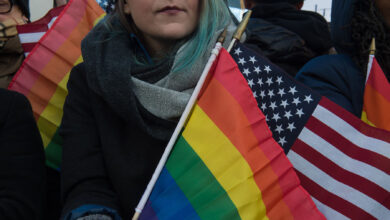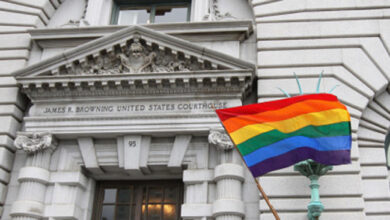US Appeals Court Rejects Nasdaq’s Diversity Rules for Company Boards

by Michelle Chapman
An appeals court in Louisiana has ruled that Nasdaq can’t require diversity on the boards of companies that list on the exchange.
The decision comes more than three years after the Securities and Exchange Commission approved Nasdaq’s proposal to boost the number of women, racial minorities and LGBTQ people on U.S. corporate boards.
The proposed policy — which was to be the first of its kind for a U.S. securities exchange — would have required most of the nearly 3,000 companies listed on Nasdaq to have at least one woman on their board of directors, along with one person from a racial minority or who identifies as gay, lesbian, bisexual, transgender or queer. It also would have required companies to publicly disclose statistics on the demographic composition of their boards.
Some conservative groups and Republican lawmakers have strenuously opposed the proposal, arguing the requirements were arbitrary and burdensome.
And on Wednesday, Dec. 11, the Fifth U.S. Circuit Court of Appeals in New Orleans decided that the proposal was not legal.
The court said in its ruling that the SEC should not have approved Nasdaq’s proposed diversity policy.
“It is not unethical for a company to decline to disclose information about the racial, gender, and LGTBQ+ characteristics of its directors,” the ruling stated. “We are not aware of any established rule or custom of the securities trade that saddles companies with an obligation to explain why their boards of directors do not have as much racial, gender, or sexual orientation diversity as Nasdaq would prefer.”
Nasdaq stands by its proposed policy.
“We maintain that the rule simplified and standardized disclosure requirements to the benefit of both corporates and investors,” Nasdaq said in a statement. “That said, we respect the Court’s decision and do not intend to seek further review.”
The Nasdaq’s U.S. exchange is dominated by technology companies, like Apple and Microsoft, but there are many financial, biotech and industrial companies as well.
The SEC also weighed in.
“We’re reviewing the decision and will determine next steps as appropriate,” an SEC spokesperson said in a statement.
The court ruling comes at a time when many companies are taking a closer look at their diversity, equity and inclusion initiatives. In October a group of Democrats in Congress appealed to the largest U.S. companies to hold onto their diversity, equity and inclusion programs, saying such efforts give everyone a fair chance at achieving the American dream.
The 49 House members, led by U.S. Rep. Robert Garcia of California, shared their views in a letter emailed to the leaders of the Fortune 1000. The move followed several major corporations saying in recent months that they would end or curtail their DEI initiatives.
A handful of U.S. companies, including Ford, Harley-Davidson, John Deere, Lowes and Molson Coors, dialed back their DEI initiatives over the summer. The retreats came in the wake of the U.S. Supreme Court outlawing affirmative action in college admissions and after conservative activists targeted prominent American brands over their diversity policies and programs.










